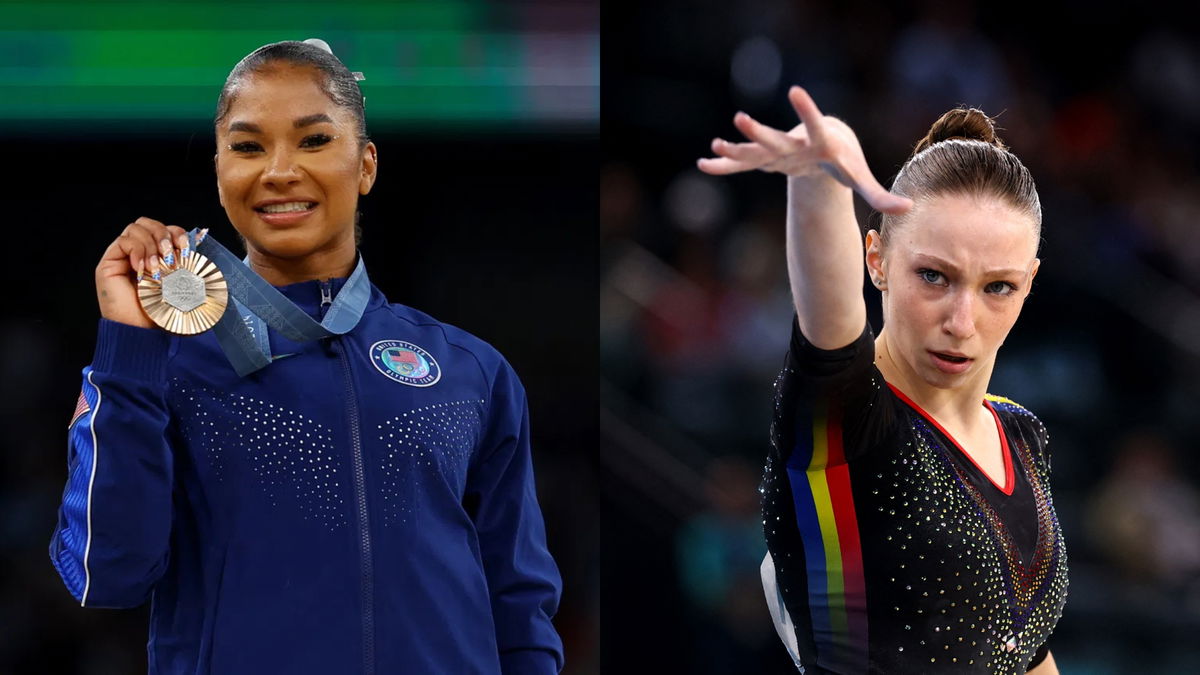
Imago
Credits: IMAGO

Imago
Credits: IMAGO
Well, the Bercy Arena is buzzing with excitement as Jordan Chiles has clinched her first individual Olympic medal—a bronze, filled with impressive turns and twists! The drama began on Monday during the women’s floor exercise final. Ana Barbosu of Romania, thrilled with her performance, celebrated by leaping onto the floor with her country’s flag.
Watch What’s Trending Now!
Meanwhile, Jordan Chiles felt deflated, thinking she had missed the podium. But moments later, the mood shifted dramatically: Barbosu, now disheartened and realizing she had not secured a medal, wept and dropped her flag in disappointment, while Chiles’ fortune changed as she was announced as the bronze medalist.
Soon, in support of Barbosu, Legendary Romanian gymnast Nadia, five-time Olympic gold medalist, all in individual events took to X, expressing her frustration: “I can’t believe we play with athletes’ mental health and emotions like this… let’s protect them #anabarbosu.” The impact on Barbosu, especially at just 18 years old, can be profound. Going from the high of celebrating a medal to the crushing realization of missing out can cause intense emotional distress.
ADVERTISEMENT
This sudden shift can lead to self-doubt, even though she performed exceptionally well. The confusion and disappointment she experienced may deeply affect her confidence and mental well-being.
I can’t believe we play with athletes mental health and emotions like this… let’s protect them #anabarbosu https://t.co/BX2hipxmM5
— Nadia Comaneci (@nadiacomaneci10) August 5, 2024
Jordan Chiles achieved a stunning bronze medal in the floor exercise at the 2024 Paris Olympics, thanks to her coaches’ successful challenge of a scoring decision that boosted her from fifth to third place. This victory marked the 23-year-old gymnast’s first individual Olympic medal, adding a dramatic twist to the competition. However, the result had a significant emotional impact on Romanian gymnast Ana Barbosu, who was initially ahead.
ADVERTISEMENT
Chiles’ original floor exercise score was 13.666, placing her just behind Barbosu’s 13.700. After her coaches, Cecile and Laurent Landi, filed an inquiry about the score, it was revised to 13.766. Meanwhile, Rebeca Andrade of Brazil took the gold medal, and Simone Biles settled for silver.
With so much going on, let’s take a look at how the points are given to athletes.
ADVERTISEMENT
After Jordan Chiles’ controversy, let’s understand the scoring system
In gymnastics, scores are comprised of two key elements: the difficulty score (D score) and the execution score (E score). The E score, which can reach a maximum of 10 points, assesses the quality of the performance, with judges deducting points for errors like wobbles, falls, or incorrect hand placements. The D score reflects the complexity of the skills performed in the routine and rewards gymnasts for including more challenging elements.
This system means that athletes like Simone Biles, who incorporate highly difficult skills into their routines, often have a scoring edge from the start due to their higher D scores. This built-in advantage provides a cushion but also increases the pressure to execute their routines with precision. Conversely, gymnasts with lower D scores must perform their routines flawlessly to achieve high overall scores, as their margin for error is smaller. Given these factors, do you think the system could be improved to ensure a fairer evaluation for all athletes?
ADVERTISEMENT
ADVERTISEMENT
ADVERTISEMENT
ADVERTISEMENT

